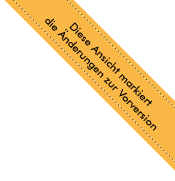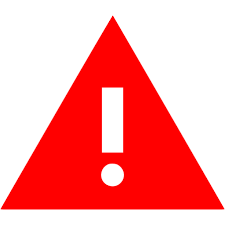Aplastic Anemia (short version)
Compliance rules
1Summary
Aplastic anemia (AA) (synonyms: panmyelopathy, panmyelophthisis) comprises a heterogeneous group of rare diseases leading to bone marrow insufficiency. The more common acquired aplastic anemias are to be distinguished from the 'inherited bone marrow failure syndromes'. Clinically, aplastic anemia is dominated by the symptoms of bi- or tricytopenia with anemia, neutropenia, thrombocytopenia in various combinations and to variable degrees.
Therapy is based on the etiology and especially on the clinical manifestation. In cases of non-severe/moderate aplastic anemia (nSAA/MAA), wait-and-see approach is recommended or, if treatment is indicated, immunosuppressive therapy. In severe or very severe aplastic anemia, allogeneic stem cell transplantation is curative. If not feasible, immunosuppressive therapy with horse anti-thymocyte globulin (ATG) plus ciclosporin A (CSA) is the gold standard in firstline treatment in these cases. New drugs such as the thrombopoietin receptor eltrombopag expand the therapeutic options.
As aplastic anemia is a rare disease and often requires further therapy optimization. Contact should be made with an expert center before initiating therapy to clarify, among other things, whether treatment is possible in the context of a clinical trial.
2Therapy
The current treatment algorithm is depicted in Figure 1.
blue: established therapy, yellow: experimental therapy
1 recommendations for children in protocols and guidelines of the Pediatric Study Group Aplastic Anemia;
2 see chapter 6. 3 (Link to German guideline)3 nSAA - non-severe AA (aplastic anemia); SAA – severe AA, vSAA - very severe AA
4 see chapter 6. 3. 1 (Link to German guideline)
5 see chapter 6. 3. 2 (Link to German guideline)
6 see chapter 6. 1. 1 (Link to German guideline)
7 important is the biological age and not the age in years; this is important for patients ≥50 years, who do not respond to non-transplant therapy
8 MUD – matched unrelated donor; see chapter 6.1.3.2.1 (Link to German guideline)
9 first line standard therapy for patients with vSAA / SAA, who are ineligible for allogeneic stem cell transplantation is the combination of ATG
(anti-thymocyte globulin), ciclosporine A and eltrombopag. (Eltrombopag is not approved for this indication in Germany).
10 allo SCT: allogeneic stem cell transplantation; Cy200 - cyclophosphamide 200 mg/kg, FluCy/ATG – fludarabine, low dose cyclophosphamide and ATG; MTX – methotrexate, TBI – total body irradiation
11 allo SCT with haploidentical stem cell donor; see chapter 6.1.3.2.1 (Link to German guideline)
3[Kapitel nicht relevant]
4[Kapitel nicht relevant]
5[Kapitel nicht relevant]
6[Kapitel nicht relevant]
7[Kapitel nicht relevant]
8[Kapitel nicht relevant]
9[Kapitel nicht relevant]
10Active studies
11Systemic Therapy – Protocols
12Study results
13Certification Status
14Links
16Disclosures
Conflicts of interest can be found in the full German version of the guideline.
Download
Reference:
Quellenangabe:
Onkopedia-Leitlinien werden kontinuierlich an den Stand des Wissens angepasst. Die jeweils gültige Version, AGB und Nutzungsbedingungen finden Sie unter www.onkopedia.com.
Für die kommerzielle Nutzung wenden Sie sich bitte an onkopedia@dgho.de.
Onkopedia guidelines are continuously adapted to the state of knowledge. The currently valid version, terms of use and general terms and conditions can be found at onkopedia-guidelines.info.
For commercial use, please contact onkopedia@dgho.de.



